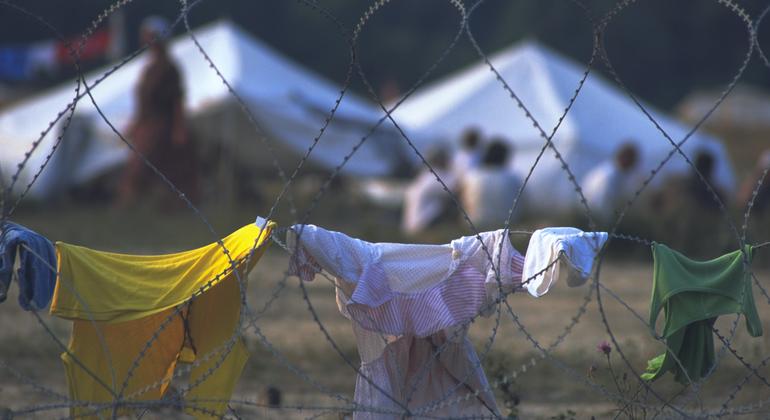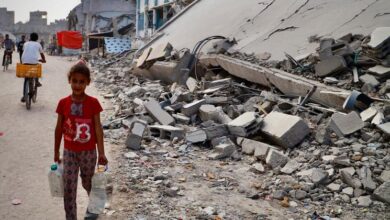The UN established the International Day of Reflection on the Srebrenica Genocide

Adopting a resolution with the same title, the Council also requested the Secretary-General to establish a public outreach program on the Srebrenica genocide in preparation for the 30th anniversary next year.
It’s more condemns any denial of the Srebrenica genocide as a historical fact and calls on Member States to preserve established facts, including through their educational systems, in order to prevent denial and distortion as well as any any appearance of genocide in the future.
The document sponsored by Germany and Rwanda was adopted by one recorded the votes of 84 countries in favor, 19 votes against and 68 abstentions.
Massacre at Srebrenica
The massacre in Srebrenica marked one of the darkest chapters of the war that erupted after the breakup of the former Yugoslavia.
In July 1995, Bosnian Serb troops overran Srebrenica, formerly declare a safe area equal Security Counciland brutally murdered thousands of men and teenagers there, and expelled 20,000 people from the town.
A small and lightly armed unit of Dutch peacekeepers under the United Nations flag was unable to resist Bosnian Serb forces.
The brutal killing of Bosnian Muslims in Srebrenica by the army of Republika Srpska was recognized as an act of genocide equal International Court of Justice (ICJ) as well as the International Criminal Tribunal for the former Yugoslavia (ICTY).
Resolutely resist rejection
Volker Türk, United Nations High Commissioner for Human Rights, welcomed the resolution as “further recognition” of victims and survivors and their pursuit of justice, truth and guarantees of non-repetition. to act.
“The resolution is what is more important is given the persistent revisionism, denial of the Srebrenica genocide and hate speech by senior political leaders in Bosnia and Herzegovina, as well as in neighboring countries,” he said in one declare.
He also emphasized the responsibility of political leaders in the region to engage in constructive dialogue to build peaceful societies “where everyone can live safely and freely, without discrimination.” treatment or fear of conflict and violence”.
Germany: Honoring the victims

Introducing the draft resolution, Antje Leendertse, Ambassador and Permanent Representative of Germany to the United Nations, said the initiative aimed to honor the victims and support the survivors, “who continue to live with the scars of that fateful period.”
The text is modeled on the General Assembly resolution designating April 7 as the International Day of Reflection on the 1994 genocide against the Tutsi in Rwanda.
“It also highlights the role of international courts in combating impunity and ensuring accountability for genocide, and contains language against genocide denial,” she added. and glorify the perpetrators.”
She also spoke out against “false accusations”, saying the resolution was “not aimed at anyone”.
“Not against Serbia, an important member of this Organization. If anything, it is aimed against the perpetrators of genocide,” Ambassador Leendertse added.
“I therefore invite everyone to evaluate the text on its merits and support our call to remember and reflect on what happened in Srebrenica almost thirty years ago.”
Serbia: Pandora’s Box

Serbian President Aleksandar Vučić labeled the text “highly politicized” and said it would “open Pandora’s box”.
The draft resolution “was hidden by its authors,” he said, adding that it lacked a comprehensive process compared to the “resolution for Rwanda,” which was prepared in a “very transparent” manner. .
He recalled discussions on the issue at the Security Council in March.
“When we wanted to discuss the 1999 bombing of Serbia, they told us ‘don’t look at the past, look at the future – it happened 25 years ago’. Two days later, we found out that they were preparing this kind of resolution regarding events even four years ago. [1999]he say.
“When they have some needs – political needs, they can go deep into the past. When others refer to the past, in that case the facts – they are not important.”
President Vučić added that with the verdicts and convictions already delivered through the judicial process, the resolution will now only deepen divisions and lead to instability.
“This is not about reconciliation, this is not about memory, this is something that will only reopen old wounds and create complete political devastation. Not only in our area, but even here, in this hall,” he argued.




